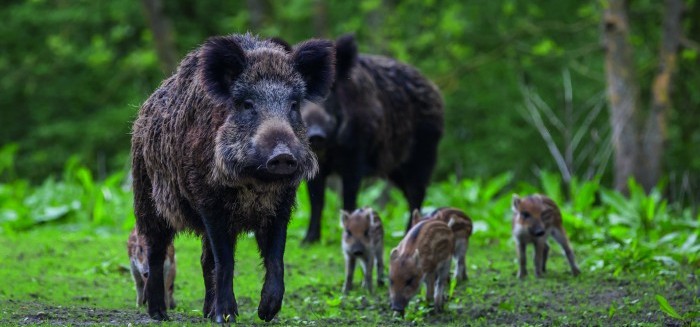Germany remains hopeful it might be able to resume pork exports some Asian destinations, as the number of confirmed cases African swine fever (ASF) in the Brandenburg region continues to grow.
There have now been 70 confirmed cases in wild boar, the five most recent cases all coming in the two designated core areas in the districts of Oder-Spree and Spree -Neisse. No cases have been detected in domestic pigs.
However, the discovery of ASF in Germany, usually one of the world’s biggest pork exporters, resulted in immediate export bans from a number of non-EU countries, notably China, which took 200,000 tonnes of pork from Germany in the first quarter of 2020 alone.
The ASF export bans, combined with the impact of COVID-19 pork plant closures has created a huge backlogs of pigs on some German farms. German pig industry body ISN estimated last week that there were 400,000 pigs awaiting slaughter, a number growing by 70,000 to 90,000 each week.
“The pig jam grows and grows. More and more pig farms are therefore in dire straits, said ISN managing director Dr Torsten Staack, who is calling for measures to be taken ti allow restricted slaughterhouses to be able to slaughter more quickly.
Positive signals
German Agriculture Minister Julia Kloeckner said she has received some ‘cautious, positive signals’ during talks with Asian nations about easing the export bans, although she stressed there was still some way to go, Reuters reports.
Germany is pursuing a regionalised approach that would involve banning pork only from areas of the country where ASF had been found, rather than a blanket national ban. Ms Kloecker has discussed the issue with a Japanese delegation.
“We are continuing to work to enable the export of pigmeat in third countries,” the Minister told a German farming conference on Friday.
“These are the first, cautious positive signals. But neither the EU Commission nor an EU member state has been until now able to reach a regionalisation concept with Asia.”
Search for wild boar carcasses
The German Federal Ministry of Agriculture (BMEL) has agreed measures with the European Commission, for slaughter options for domestic pigs in the restricted areas.
There are over 300 pig farms with around 85,000 animals in the restricted ASF areas and for animal welfare reasons, it is necessary that these animals can be slaughtered to prevent overcrowding in pig buildings, ISN said.
There were issues surrounding how this would work, but these have now been resolved on the initiative of Ms Klöckner. “This not only serves animal welfare, but also relieves the animal owners in the affected areas,” ISN said.
The BMEL is also supporting Brandenburg in building the permanent fence on the border with Poland, with the help of co-financing from the EU. The aim is still to build a second fence on the Polish side to create a so-called white zone to be kept free from wild boar.




